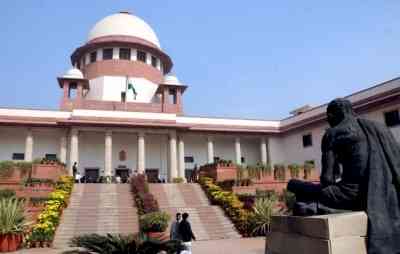SC imposes cost of Rs 65 lakh on Punjab State Power Corporation for raking up same issue again and again
The Supreme Court has imposed a cost of Rs 65 lakh on the Punjab State Power Corporation Ltd for raking up an issue relating to payment of monthly tariff due to private firms.

New Delhi, Oct 11 (IANS) The Supreme Court has imposed a cost of Rs 65 lakh on the Punjab State Power Corporation Ltd for raking up an issue relating to payment of monthly tariff due to private firms.
A bench of Justices S.K. Kaul, Sudhanshu Dhulia. and Aravind Kumar directed the public sector undertaking to pay Nabha Power Ltd and Talwandi Sabo Power Ltd a cost of Rs.40 lakh and Rs.25 lakh, respectively.
"The dispute inter se the parties is in the nature of a contractual dispute. Normally, costs must go with the succeeding party in case of a contractual dispute. This is more so where one party repeatedly seeks to evade the rigors of the order," observed the bench in a recent order.
It noted that the pricing of the coal was found to be the crux of the problem and was adjudicated vide a judgment passed in October 2017 but the very issue was sought to be raked up again.
"We, thus, feel that some example must be set in such cases and the appeals are liable to be allowed with costs, which were actually incurred by the appellants (power firms)," the Supreme Court said.
It noted that actual bills of costs exceeded Rs 3.62 crore by both the appellants and in view of this nature of fee, the apex court quantified the cost in favour of Nabha Power Ltd and Talwandi Sabo Power Ltd at Rs.40 lakh and Rs.25 lakh, respectively.
In August 2019, the top court had disposed of the appellants’ contempt pleas saying that its judgment should be followed in letter and spirit and directed the power corporation for payment of due within a period of eight weeks from the date of the order.
Later, this timeline was extended for a further period of twelve weeks.
In March 2021, the Supreme Court again directed the corporation to make payment of the outstanding in two equated installments on or before March 31 and May 31 of that year.



 IANS
IANS 










